Levotiron Tablet 200 Mg
Levotiron Tablet 200 Mg, the brand name for the generic drug levothyroxine, is a medication that has become a cornerstone in the management of hypothyroidism. We’ve delved deep into the intricacies of this essential thyroid medication to provide you with a comprehensive overview of its uses, dosage, side effects, and more.
| Dosage form | |
|---|---|
| Pack size | |
| Potency | 200 Mcg |
| Manufacturer | Abdi Ibrahim |
| Origin | Turkey |
| Generic Name (Ingredient) | Levothyroxine Sodium 200 Mcg |
Assuming your emergency circumstances for this product, visit Urgent Quotation page. Besides, for any pharmaceutical questions, please ask us in the comments section.
Description
Understanding Hypothyroidism and the Role of Levotiron
Hypothyroidism is a condition where the thyroid gland, a small, butterfly-shaped organ located in the neck, does not produce enough thyroid hormones. These hormones, triiodothyronine (T3) and thyroxine (T4), play a crucial role in regulating the body’s metabolism, energy production, and overall bodily functions.
Levotiron Tablet 200 Mg, containing the active pharmaceutical ingredient (API) levothyroxine sodium, is specifically designed to replace or supplement the missing thyroid hormones in individuals with hypothyroidism. By restoring the balance of these essential hormones, Levotiron aims to alleviate the symptoms associated with an underactive thyroid.
Mechanism of Action: How Levotiron Works
Levothyroxine, the active ingredient in Levotiron, works by increasing the rate of cell metabolism throughout the body. It helps regulate energy production, metabolism, and a wide range of physiological processes. By supplementing the missing thyroid hormone, Levotiron helps restore the balance and proper functioning of the thyroid gland, ultimately improving the overall health and well-being of individuals with hypothyroidism.
Indications and Uses of Levotiron Tablet 200 Mg
Levotiron Tablet 200 Mg is primarily prescribed for the following conditions:
Hypothyroidism
Levotiron is the go-to treatment for individuals with hypothyroidism, a condition where the thyroid gland does not produce enough thyroid hormones naturally. By replacing the missing hormones, Levotiron helps alleviate the symptoms associated with an underactive thyroid.
Thyroid Disorders
In addition to hypothyroidism, Levotiron may also be used to manage other thyroid-related conditions, including thyroid cancer. It can help regulate thyroid function and support overall thyroid health.
Dosage and Administration of Levotiron
Proper dosage and administration of Levotiron Tablet 200 Mg are crucial for optimal effectiveness and safety. Here’s what you need to know:
Oral Administration
Levotiron should be taken orally, usually once daily, on an empty stomach, 30 minutes to 1 hour before breakfast. This timing ensures optimal absorption of the medication.
Swallowing Whole
Patients should swallow the tablet whole, without splitting, crushing, or chewing it. For infants or children unable to swallow whole tablets, the tablet can be crushed and mixed with water for immediate administration.
Individualized Dosing
The dosage of Levotiron is individualized based on factors such as age, weight, laboratory results, and the patient’s response to treatment. Regular monitoring of thyroid-stimulating hormone (TSH) and thyroxine (T4) levels is essential to ensure the appropriate dose is maintained.
Consistent Use
Consistent and regular use of Levotiron is crucial for achieving the desired therapeutic benefits. Skipping doses or inconsistent use can delay or compromise the effectiveness of the medication.
Monitoring and Warnings
Patients taking Levotiron Tablet 200 Mg should be aware of the following monitoring and warning considerations:
Thyroid Function Monitoring
Regular monitoring of thyroid-stimulating hormone (TSH) and thyroxine (T4) levels is essential to ensure the appropriate dose of Levotiron is maintained. Healthcare providers will adjust the dosage as needed based on these lab results and the patient’s response to treatment.
Medication Interactions
Certain medications, such as cholestyramine, antacids, and iron supplements, can affect the absorption of levothyroxine. Patients should separate the administration of these medications from Levotiron by at least 4 hours.
Brand Consistency
Patients should consult their healthcare provider before changing brands of levothyroxine, as different brands may have slight variations that can impact the medication’s effectiveness.
Potential Side Effects of Levotiron
While Levotiron Tablet 200 Mg is generally well-tolerated, some patients may experience the following common side effects:
- Tiredness
- Muscle aches
- Constipation
- Dry skin
- Weight gain
- Slow heartbeat
- Sensitivity to cold
It’s important to note that individual responses to Levotiron can vary, and some patients may experience different or more severe side effects. Patients should report any unusual symptoms to their healthcare provider promptly.
Dietary Considerations and Levotiron
When taking Levotiron Tablet 200 Mg, it’s essential to consider certain dietary factors to ensure optimal absorption and effectiveness:
Timing of Administration
Levotiron should be taken on an empty stomach, 30 minutes to 1 hour before breakfast, to maximize absorption. Patients should avoid consuming food or beverages (except water) during this fasting period.
Interactions with Other Substances
Certain substances, such as calcium, iron, antacids, and cholestyramine, can interfere with the absorption of levothyroxine. Patients should separate the administration of these substances from Levotiron by at least 4 hours.
Goitrogenic Foods
Some foods, such as cruciferous vegetables (broccoli, cauliflower, cabbage, kale) and soy products, can interfere with thyroid function. While it’s not necessary to avoid these foods entirely, patients should be mindful of portion sizes and consult their healthcare provider if they have concerns.
Individual Variability
Responses to levothyroxine can vary among individuals. Patients should monitor their symptoms and thyroid function regularly and consult their healthcare provider if they experience any unusual effects.
Levotiron and Medication Interactions
When taking Levotiron Tablet 200 Mg, it’s crucial to consider potential interactions with other medications. Patients should inform their healthcare provider about all the medications they are currently taking, including over-the-counter drugs, supplements, and herbal remedies.Some common medications that can interact with Levotiron include:
- Calcium supplements or dairy products
- Iron supplements
- Antacids
- Cholestyramine
Patients should separate the administration of these medications from Levotiron by at least 4 hours to ensure proper absorption and effectiveness.
Symptoms of Over- or Under-Dosing with Levotiron
It’s essential for patients taking Levotiron Tablet 200 Mg to be aware of the potential symptoms associated with over- or under-dosing:
Under-Dosing (Insufficient Thyroid Hormone)
Symptoms of under-dosing with Levotiron may include:
- Fatigue
- Weight gain
- Depression
- Dry skin
- Constipation
- Slow heartbeat
- Sensitivity to cold
- Difficulty concentrating
Over-Dosing (Excessive Thyroid Hormone)
Symptoms of over-dosing with Levotiron may include:
- Elevated pulse and blood pressure
- Anxiety and nervous energy
- Tremors
- Irritability and emotional instability
- Difficulty sleeping
- Feeling overheated
- Diarrhea
Patients should report any unusual symptoms to their healthcare provider, who can then make the necessary adjustments to the Levotiron dosage.
Onset of Action and Consistency
Levotiron Tablet 200 Mg typically takes a few weeks to start working effectively. Patients may not notice significant changes in the first few days, but over several weeks, the medication helps restore thyroid hormone levels and alleviate hypothyroid symptoms.Consistent and regular use of Levotiron is crucial for optimal benefits.
Skipping doses or inconsistent use can delay the onset of action and compromise the effectiveness of the medication. Regular monitoring of thyroid function (TSH and T4 levels) is essential, as adjustments to the dose may be necessary based on lab results and the patient’s response to treatment.
Conclusion
Levotiron Tablet 200 Mg, the brand name for levothyroxine, is a vital medication in the management of hypothyroidism. By replacing the missing thyroid hormones, Levotiron helps restore the balance and proper functioning of the thyroid gland, ultimately improving the overall health and well-being of individuals with an underactive thyroid.
We’ve aimed to provide a comprehensive overview of Levotiron, covering its uses, dosage, side effects, dietary considerations, and potential interactions. Patients should work closely with their healthcare providers to ensure the appropriate use and monitoring of this essential medication.Table: Key Information about Levotiron Tablet 200 Mg
| Category | Details |
|---|---|
| Side Effects | Tiredness, muscle aches, constipation, dry skin, weight gain, slow heartbeat, sensitivity to cold |
| Dosage | Take orally, once daily, on an empty stomach, 30 minutes to 1 hour before breakfast |
| Benefits | Replaces missing thyroid hormones, restores thyroid function, alleviates hypothyroid symptoms |
| Usage | Treat hypothyroidism, manage other thyroid disorders |
| Dietary Considerations | Avoid calcium, iron, antacids, and cholestyramine close to medication dose; moderate intake of goitrogenic foods |
Use the form below to report an error
Please answer the questions as thoroughly and accurately as possible. Your answers will help us better understand what kind of mistakes happen, why and where they happen, and in the end the purpose is to build a better archive to guide researchers and professionals around the world.
The information on this page is not intended to be a substitute for professional medical advice, diagnosis, or treatment. always seek the advice for your physician or another qualified health provider with any questions you may have regarding a medical condition. Always remember to
- Ask your own doctor for medical advice.
- Names, brands, and dosage may differ between countries.
- When not feeling well, or experiencing side effects always contact your own doctor.
Cyberchondria
The truth is that when we’re sick, or worried about getting sick, the internet won’t help.
According to Wikipedia, cyberchondria is a mental disorder consisting in the desire to independently make a diagnosis based on the symptoms of diseases described on Internet sites.
Why you can't look for symptoms on the Internet
If diagnoses could be made simply from a textbook or an article on a website, we would all be doctors and treat ourselves. Nothing can replace the experience and knowledge of specially trained people. As in any field, in medicine there are unscrupulous specialists, differences of opinion, inaccurate diagnoses and incorrect test results.

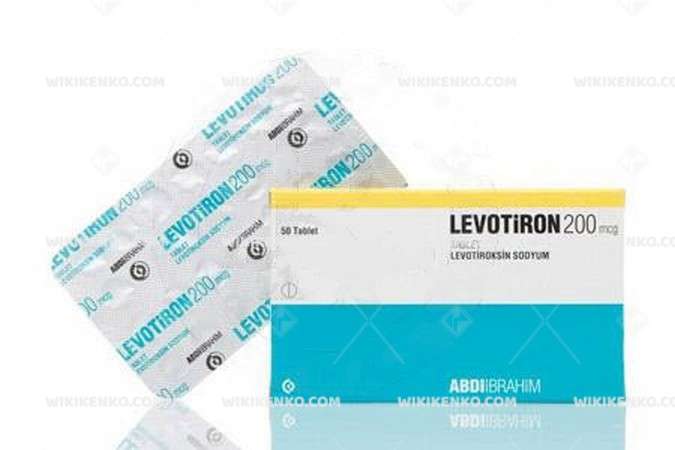
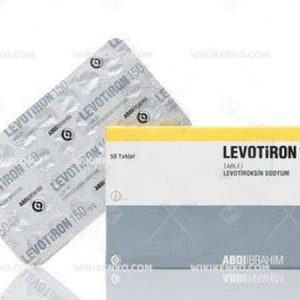
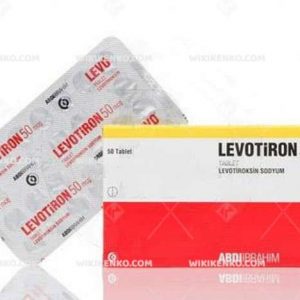
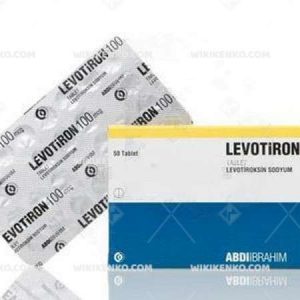
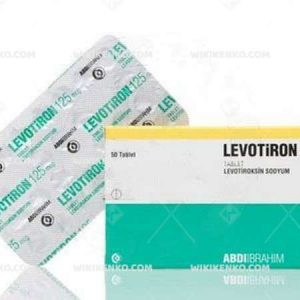

Reviews
There are no reviews yet.